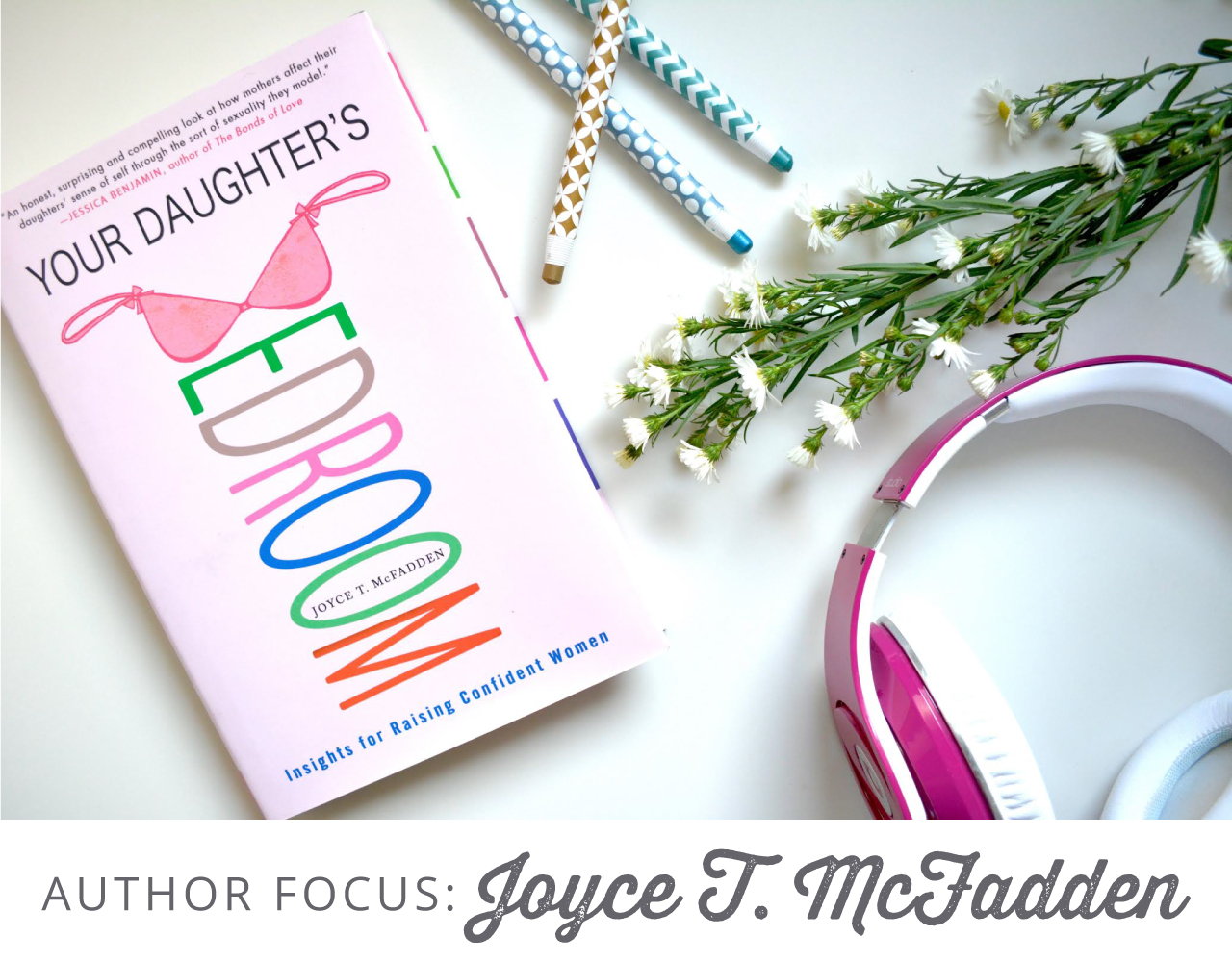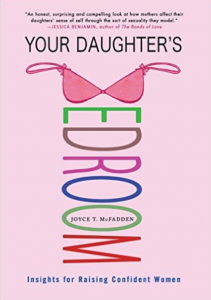Raising Confident Women with Joyce T. McFadden

With two growing daughters, I’ve been putting a lot of thought into how to raise them to be confident, strong, smart, kind, and comfortable in their own skin. Isn’t that what most of us work towards—feeling comfortable in our own skin? For it’s when we find that inner-most comfort, that everything else radiates from within.
As our daughters’ mature, their bodies change, feelings arise, and questions abound… Whether we address these topics head-on, discuss them as they emerge, or hope that school will do the job for us—as mothers of daughters, we are still teaching them life-changing lessons—whether we realize it or not. For they are taking in our explicit and implicit messages everyday—our ways of relating with our partners, our body image, our belief systems, and the secrets we hold…
In my quest to find guidance for the “tricky” situations that arise when raising tween daughters, I came across the work of Joyce T. McFadden and her book, Your Daughter’s Bedroom: Insights for Raising Confident Women. Reading her work was like a breath of fresh air as she explores the “touchy subjects” that others tend to skim over. Yet, as mothers who are in tune with our daughters we can’t skim over them, we need guidance on how to positively approach them—for if not us, then who?
I had a serendipitous meeting with Joyce (I was pleased to discover that we live in the same town and chased her down in a local grocery store parking lot!) a while back and she graciously agreed to do an interview and lead a book club at the studio. So, it is with great pleasure that I bring you, Joyce T. McFadden…
Mariah: Can you share a bit about the Women’s Realities Study that you conducted? What can we take away from your research?
Joyce: The Women’s Realities Study is an anonymous qualitative study of 450 women ranging in age from 18-105, with a handful of local girls in addition to that demographic. It’s an unprecedented study because as far as I know, it’s the only one in which all of the content was self-selected by each respondent, giving women complete control over what they wanted to share. Here’s the link to the 63 open-ended questionnaires so you can get a sense of their content–women could respond to as many or as few as they liked, and write as much or as little as they chose: http://womensrealities.com/participate.htm.
What I hope women will take away from the results of the study is a deeper understanding of and appreciation for the realities of our lives–not the game face we usually show to the outside world, but what we girls and women experience internally and often keep to ourselves. In order to get published, I had to narrow the scope of the results, so I did an analysis of the three most popular questionnaires: menstruation, relationship with your mother, and masturbation. It was the women of the study who chose female sexuality, as it’s impacted by the mother-daughter bond, as the topic of the book.
Mariah: Why is it important for mothers to play a proactive role in teaching their daughters about their physical and sexual development?
Joyce: Because when it comes to our girls’ sexuality, they report feeling like they’re working without a net. Even very young girls know that their mothers share the things they are most proud of and excited about. It’s the things that are shameful or wrong that they keep secret. So if we don’t teach our daughters about sexual development and how it affects their sense of self and their social landscape, we tinge it with shame and guilt that women report lasts well into adulthood.
Mariah: When it comes to discussing our daughter’s maturing bodies and emotions, why do we need to do more than provide informative books?
Joyce: Although they need information from us, it’s the emotional connection with us that girls are yearning for. Books alone can’t provide that.
Mariah: In your book, Your Daughter’s Bedroom: Insights for Raising Confident Woman, you state that the more “basics” we can give our daughters when they are younger, the more we can build on them as they get older. How do you suggest we get the conversation going?
Joyce: It’s funny that we’re so afraid to start when they’re young, when it’s SO simple to do—far simpler than starting when they’re older and more self-conscious. When our daughters are toddlers, the small act of teaching them the anatomical names for their body parts, during bath time, when they’re getting dressed, or when they ask “what’s this?” is the easiest way to start giving them a firm foundation. To them, learning about their earlobe is no different than learning about their vulva. At that age they’re excited to learn about absolutely everything, including their bodies.
Mariah: What is your advice to mothers of tweens and teens who don’t know where to start?
Joyce: My book is loaded with examples for how to have these conversations. The most important motivator for mothers is that the study reveals daughters whose mothers don’t talk to them about sexuality report feeling disappointed in their mothers, and find it creates a chasm in the mother-daughter relationship that can last a lifetime.
Mariah: What are some practical ways that mothers can start to connect with their daughters at any age?
Joyce: Listen to them. Talk with them, not at them. Look over your own sexuality and consider its importance in your life. Let your daughters know you understand their sexuality will play a role in the quality of their lives, and that it’s your honor to support them in their quest for happiness in all areas: emotional, intellectual, physical, interpersonal, and sexual.
 |
